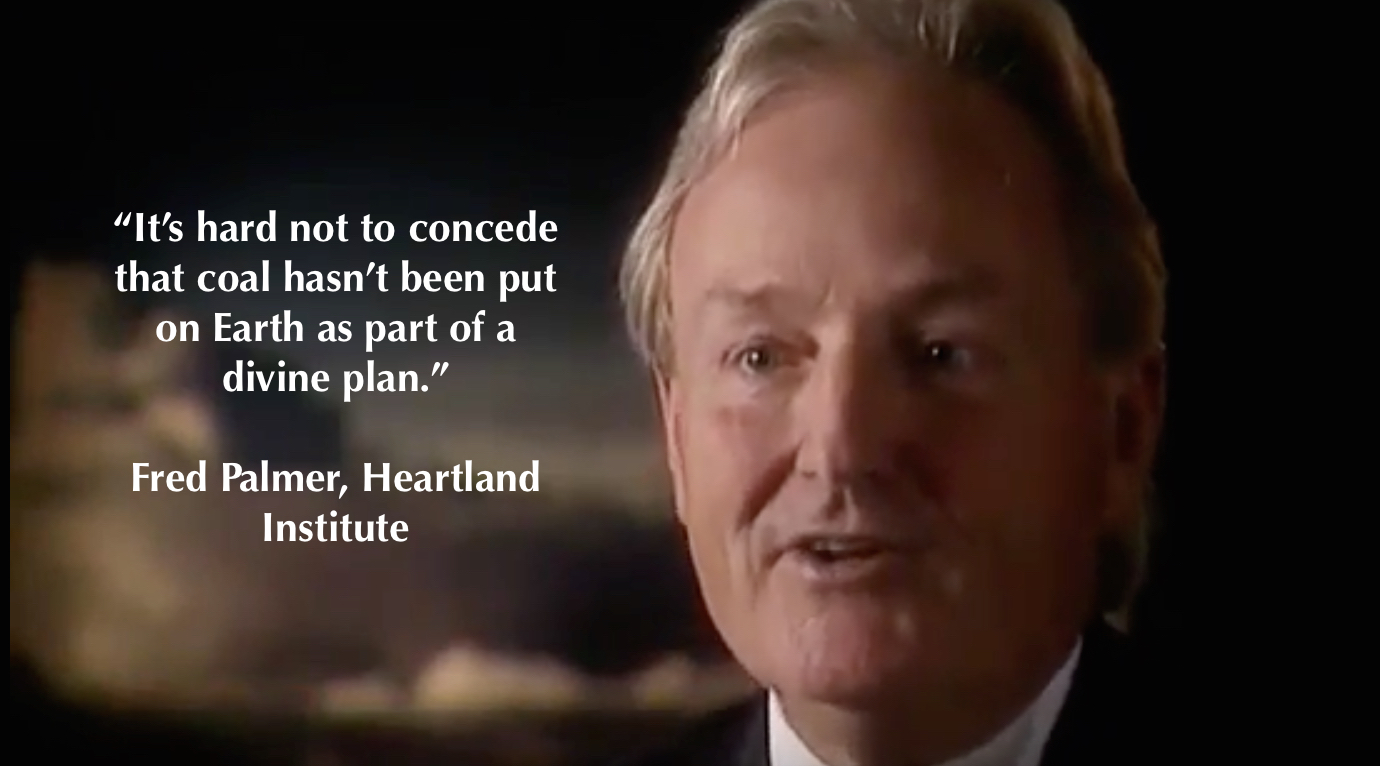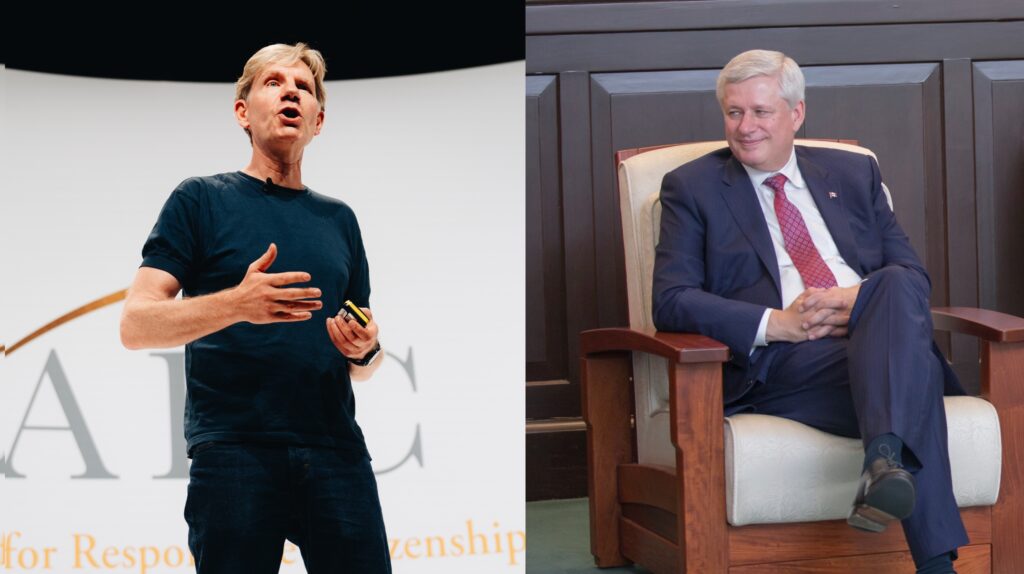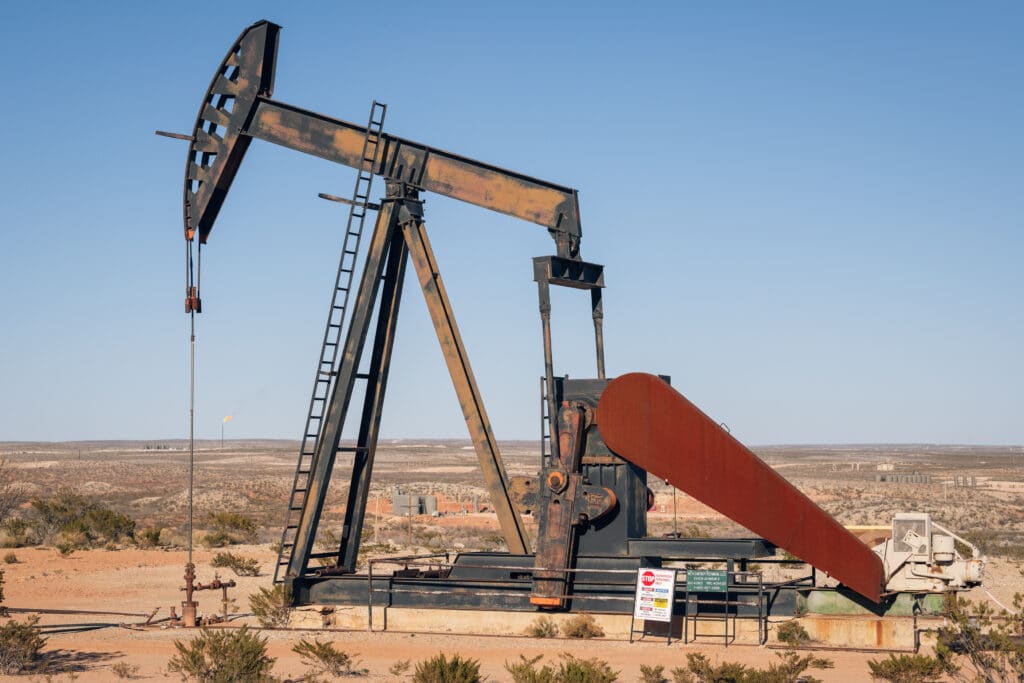In July 1988, on page 11 of Sports Illustrated magazine, one story caught the eye of Fred Palmer.
Under the headline “The Foul, Hot Summer,” the article lamented that year’s scorching heat and drought.
“We have only ourselves to blame for this midsummer’s nightmare. Burning fossil fuels has created many of these environmental ills,” the story read.
Palmer was worried. As the boss of Western Fuels Association (WFA), a co-op of coal power generators and haulers, this self-confessed “prairie populist” could see the writing on the wall for his industry.
“There was a nationwide heatwave, and I remember it specifically because it ruined a vacation I was going to have on the eastern shore at Chesapeake Bay. The well waters all went dry,” he said.
If governments started to get serious about acting on climate change, then coal plants would be the first in line at the chopping block.
Just a few weeks earlier, Palmer had watched NASA climate scientist James Hansen deliver what was to become historic testimony before the U.S. Senate.
“The greenhouse effect has been detected and it is changing our climate now,” said Hansen, in a speech that pushed the science of climate change into the public consciousness.
Now, even Sports Illustrated was delivering clear-eyed assessments on the science.
At the same time, America’s iconic Yellowstone National Park was on fire, in what would become the park’s worst recorded episode of wildfires.
“At the time I don’t think people really understood the import of it. But I did understand the import of it. I engaged immediately,” Palmer told DeSmog.
And engage he did, helping to form one of the very first fossil fuel–funded campaigns that would directly target the science of climate change in order to influence the public’s understanding.
For more than 25 years, Palmer worked on government relations in the coal industry — first for Western Fuels Association and then Peabody Energy — before joining climate science denial group the Heartland Institute just a few weeks ago.
Now that long-running and relentless campaign of fossil fuel–funded misinformation which Palmer helped to kick-start has reached its zenith with the election of Donald Trump.
“For the first time in 25 years, CO2 greenhouse gas emissions are not the driving consideration in energy development in the United States,” said Palmer.
“That’s a transformational development and it took a Donald Trump to become president of the United States to put that on the table. I say God bless him.”
The ICE Campaign
After the Yellowstone fires, and Hansen’s testimony, and that Sports Illustrated article, Palmer said he was approached by two coal men — Gale Klappa, then of Southern Company, and Fred Lukens, of Minnkota Power.
Klappa and Lukens wanted Palmer, a former lawyer, on the board of a new project with several working titles, all incorporating the acronym ICE — the Information Council for the Environment, Informed Citizens for the Environment, Intelligent Concern for the Environment, and Informed Choices for the Environment.
One of the stated aims of the ICE campaign was to “reposition global warming as theory (not fact).”
Recalls Palmer: “I went to my board not long after the Hansen presentation, probably in 1990, and I said, you know, these coal plants have the most CO2 coming out of them than anywhere else. It was the top of the food chain, I called it. The board agreed. The board said I could go on the ICE board, so I did.”
Newspaper ads were designed, meetings with editors scheduled, radio scripts written (including some for conservative firebrand Rush Limbaugh), and target demographics identified — all backed by focus group findings and market research.
Contrarian scientists Patrick Michaels, Robert Balling, and Sherwood Idso were identified as spokespeople. (ICE‘s research suggested scientists would appear more trustworthy delivering a message that evidence for dangerous climate change was weak).
But Palmer said he quickly became “dissatisfied” with the approach of ICE. “I didn’t think it was a PR issue. I thought it was a scientific educational issue,” he said.
“I have always been about education, but I was chair (of ICE) and … I looked at it and I said ‘I don’t like this’ and so we got out of ICE and it was abandoned and Western Fuels started the Greening Earth Society.”
Merchant of Doubt
Harvard University Professor Naomi Oreskes, an expert on the history of organized climate science denial and co-author of the book Merchants of Doubt, said the ICE campaign was a key moment in the movement’s history.
“ICE was very important because it was one of the first attempts to question and challenge the science, for political reasons, and to try to block policy action,” she told DeSmog.
“It shows how this network functions: do research to find out how best to undermine public confidence in the science as a means to undermine public support for policy action. Then create a front group with an attractive name — Informed Citizens for the Environment — that makes it seem like a grassroots movement. But in fact ICE was wholly-funded by the coal industry.”
Palmer’s next venture, the Greening Earth Society, produced videos and materials that looked to propagandize the science linking fossil fuel burning to dangerous climate change on two fronts.
The coal-funded group told the public that adding CO2 would only be beneficial to trees and food crops and, in any case, the computer models that they claimed drove climate science (but don’t) could not be trusted.
One Western Fuels Association “greening earth” video ended with this wonderfully vague assertion: “It is not inconceivable that the vitality of our entire biosphere could rise by a full order of magnitude over the next few centuries.”
Many of the talking points that were developed and polished in those early campaigns, as well as the contrarian scientists and fake experts that endorsed them, are still around today.
Palmer joined coal giant Peabody Energy in 2001 as its head of government relations and, later, a special advisor to the company’s leadership.
In June 2016, it emerged that Peabody had been funding an entire network of climate science denial groups — funding which those groups had kept secret.
Coal-Funded Climate Denial
A few weeks ago, climate science denial group the Heartland Institute announced that Palmer would join the group as a senior fellow.
But while many despise that nefarious industry funding and see it as a clear and undisclosed conflict of interest, Palmer is unapologetic to those people.
“Maybe they do [despise that kind of activity]. But they don’t understand life and they don’t understand advocacy. I can’t help that … I am reaching out to the fossil fuel community right now and raising money for Heartland,” he said. “Of course that’s acceptable.”
Coal: Part of God’s Divine Plan
After 35 years defending his industry, Palmer, a Roman Catholic, remains as literally evangelical about coal as he was in 1997.
Back then, he told a Dutch documentary maker that when people burned gasoline in their cars and added CO2 to the air, they were “doing the work of the Lord.”
Now, Palmer told DeSmog: “It’s hard not to concede that coal hasn’t been put on Earth and other fossil fuels as part of a divine plan. Because it’s easy to get to, it’s here and more people live better and longer from it, I believe that. I’m not terribly religious but I’m a believer in Christ and all of those things. But I’m relaxed about it.”
On his interpretation of the science, Palmer’s views have changed not one bit since the late 1990s.
“There are no observations that we have been having catastrophic global warming — it’s sophistry. It’s an agenda driven by lawyers who make their own facts and make up their own laws and that was called the Obama administration. [Former vice president Al] Gore would have been the same way if he had been in power.”
Palmer does not accept, for example, that records of extreme heat are linked to CO2 levels in the atmosphere. He says rising sea levels are “not a threat to any coastal area in the world, at all.”
Palmer’s views, and those of others now embedded in the Trump-led administration, are, of course, contradicted outright by every major scientific academy on the planet.
Among those part of Trump’s Environmental Protection Agency (EPA) transition team is long-serving climate science denier Myron Ebell, who has been involved in campaigns to muddy the science since the late ’90s.
Palmer knows Ebell, but brags he was “the first in the room” on attacking the science to defend his industry.
I asked Palmer if he ever stops to think that perhaps being paid by the coal industry for 35 years has slanted his view.
He admitted it has, but only, he said, in exposing him to how fossil fuels have been used “in the natural environment and in the human environment where more people live longer and live better.”
So what of the Trump presidency? Palmer has great hopes, and says we’re about to experience “an historical presidency.”
He speaks in glowing terms of Trump’s “America First Energy Plan” that promises to push hard for fossil fuel exploitation.
“I have been in and around Washington, D.C a long time. It’s an exciting time in our development and I think Donald Trump will succeed,” said Palmer. “This town still doesn’t. We are going to have eight years of Donald Trump and then eight years of President Pence so get ready. Then tell me what D.C. looks like after that period.”
Some might also ask what the prospects for avoiding catastrophic climate change might look like after a Trump presidency.
According to Oreskes, climate science deniers like Palmer are understandably emboldened by Trump’s election.
“I think climate deniers are pretty darn pleased with themselves right now,” she said.
“If only they would think about the 1.9 million American homes that will be lost, worth nearly $900 billion dollars, if we see two meters of sea level rise this century, which scientists now think is wholly possible. Or the 30 million people in the Bay of Bengal who will become climate refugees. Where do they think those people will go?”
“I know, I know,” she adds. “They don’t believe it.”
Main image: Screenshot of Fred Palmer appearing in a 2000 PBS documentary
Subscribe to our newsletter
Stay up to date with DeSmog news and alerts







